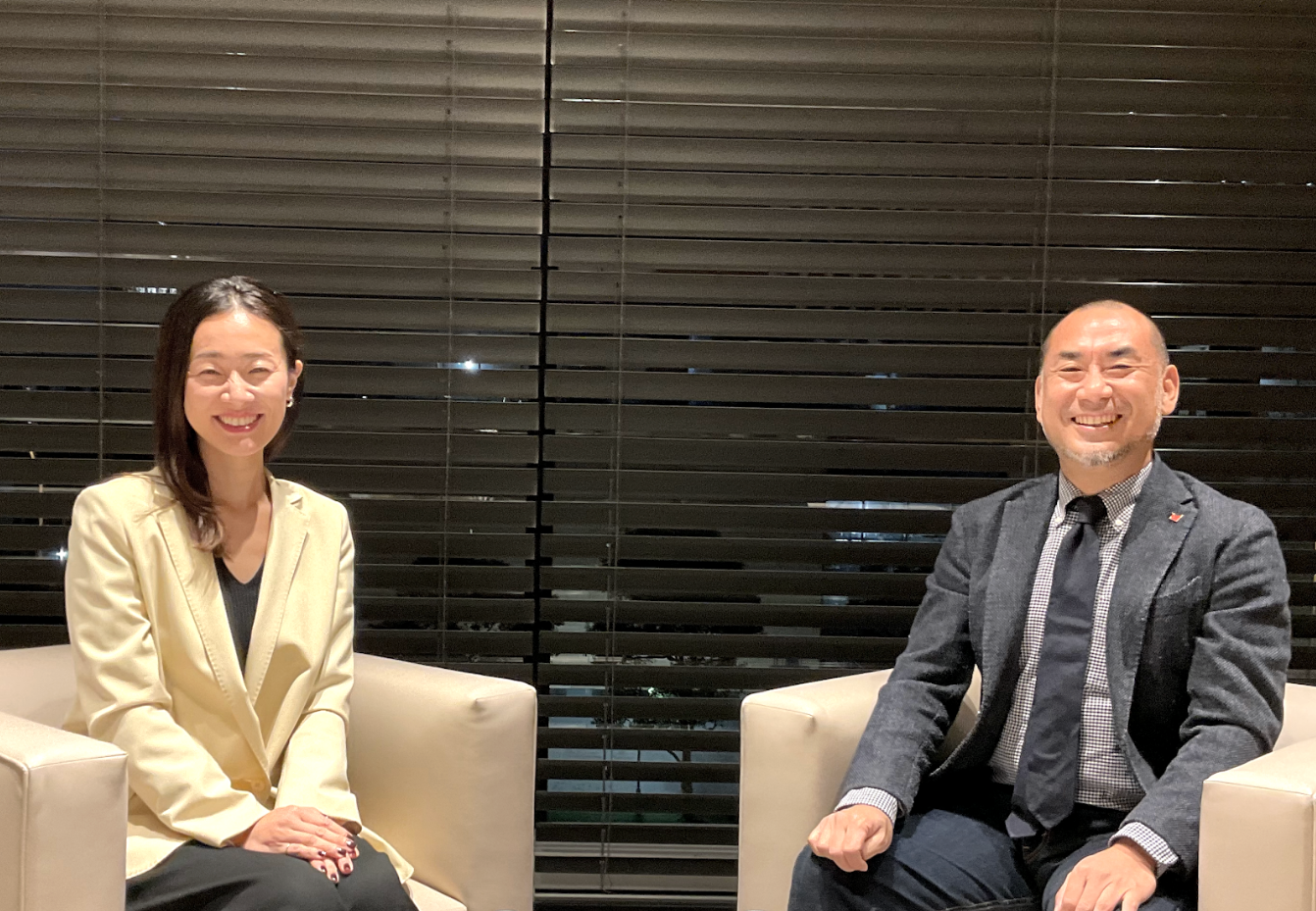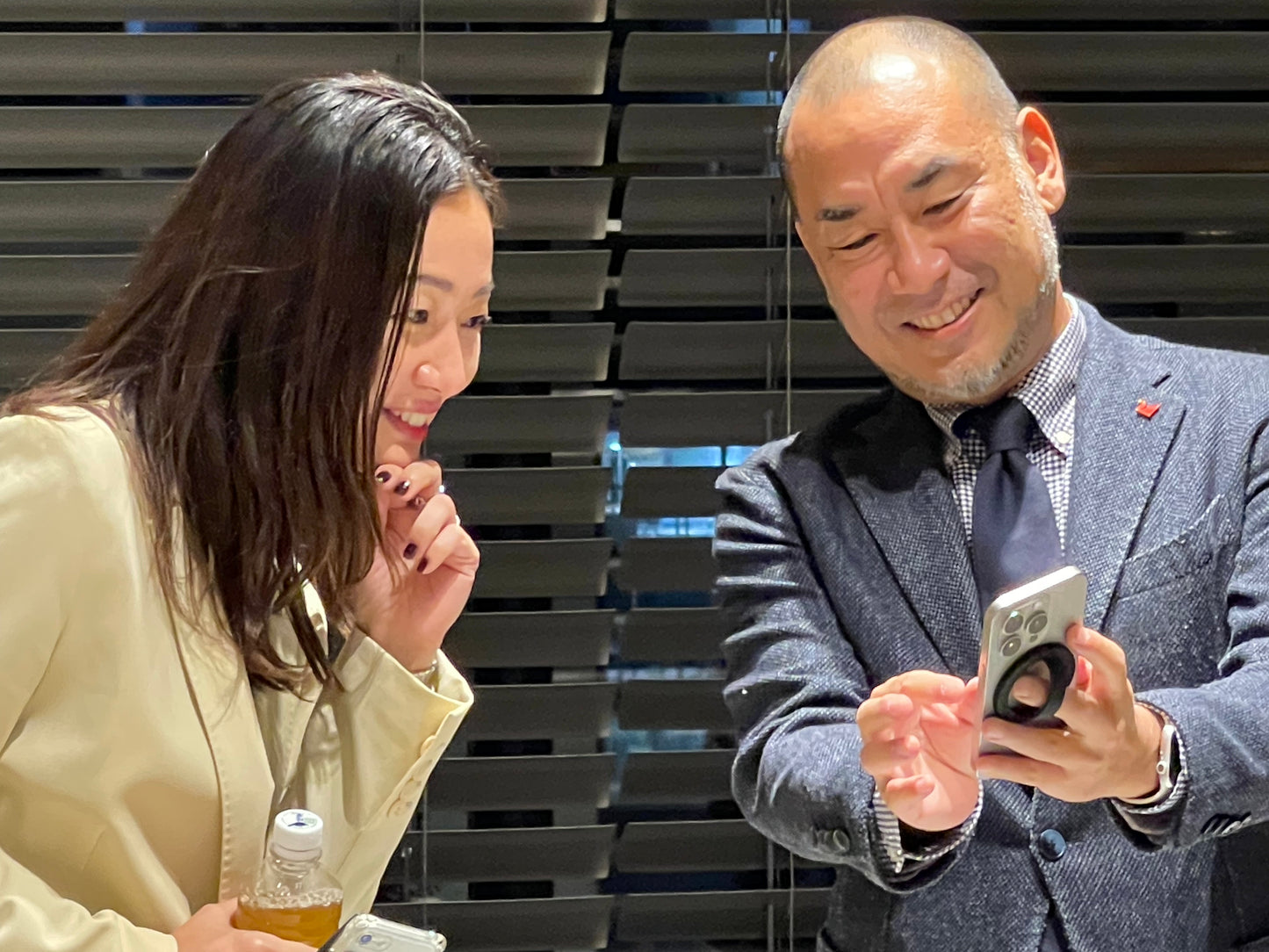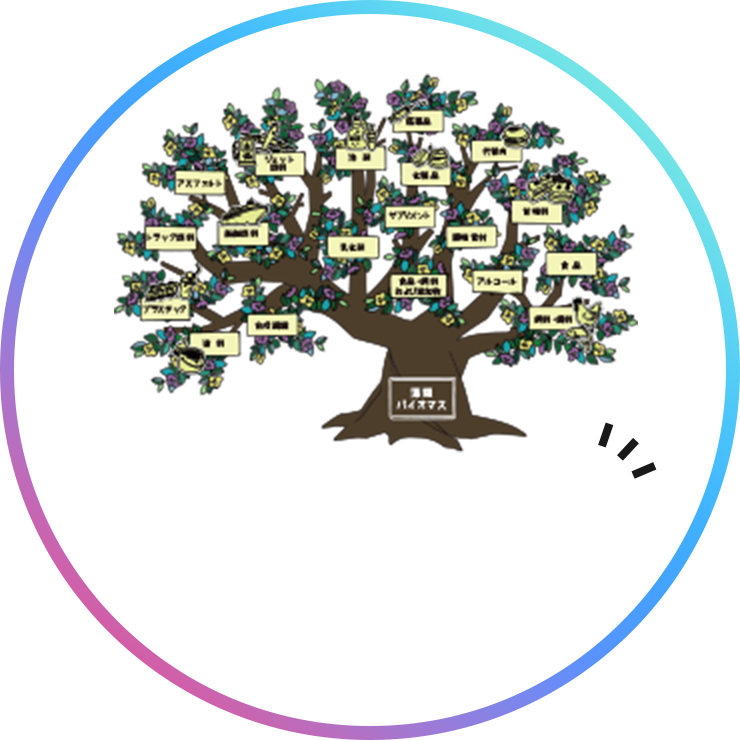

“Algae” is a new challenge for the cosmetics industry

Social implementation of replacing fossil resources with naturally derived algae.

Shiseido and Chitose Group's vision for the future 1,000 years from now

Become a game changer that continues to pursue added value for our customers.
\ This is how the "power of algae" enriches our lives./
This is how the "power of algae"
enriches our lives.

member
-
Shiseido Co., Ltd.
Oyama Shihori
-
CHITOSE Group&MATSURI Founder
Tomohiro Fujita
-
Partner
-
Shiseido Company, Limited.
-
CHITOSE BIO EVOLUTION PTE.LTD.
Member
-
Shiseido Co., Ltd.
Oyama Shihori
-
CHITOSE Group&MATSURI Founder
Tomohiro Fujita
-
Partner
-
Shiseido Company, Limited.
-
CHITOSE BIO EVOLUTION PTE.LTD.
What is the algae-based recycling-oriented manufacturing that Shiseido is seriously working on?

I'm Botulio, and I'm here to interview you about the passion of both companies. thank you. First of all, the first thing I would like to ask is... "In July 2023, we will invest 1 billion yen to start creating circular products based on algae." What was the biggest deciding factor in your decision to work with Chitose Research Institute? ”

Although we cannot limit ourselves to just one partner, it is important that we have a reliable partner. In the highly competitive microalgae industry, the most decisive factor was reliability backed by high technological capabilities, such as building the world's largest algae plant and achieving the highest CO2 absorption rate in the world.

I heard that you toured the world's largest algae production facility. What did you think?

Vice President Okabe and researchers toured the site. Shiseido considers the realization of recycling-oriented manufacturing to be an important theme, and we are passionately working on this project. In particular, we will promote recycling at the raw material level, so I heard that when I toured the facility, I was so excited by the large scale of the facility that I couldn't contain my excitement. We hope that this will become a symbol of our sustainability efforts in the future.

When thinking about realizing circular manufacturing, were there any candidates other than the algae industry?

Realizing this with algae was one of the possibilities, so we weren't just looking at the algae industry. In line with the goal of using natural ingredients as raw materials for cosmetics, one option was the algae industry.
The world's first challenge to build the world's largest algae production facility
5 hectare algae production facility in Sarawak, Malaysia

What do you think about the fact that Shiseido's Vice President Okabe visited the world's largest algae production facility (in Kuching, Malaysia) and had high expectations for us?

We’re very happy. We are very happy that you were able to see the harsh conditions of the site with high solar radiation and interact with local members before making your decision.

What was the biggest challenge in starting up the world's largest plant?

We may not be able to say it's the best, but it's something no one in the world has ever done before, so we're taking on the challenge while searching for the correct answer. Our current state is the result of believing in ourselves and building things up one step at a time. I feel like I've come this far. In fact, recently, we have been in a difficult environment due to the corona virus and war, but when I saw the proud faces of my colleagues who were working hard in the dark, I couldn't hold back my tears and cried at the opening ceremony.

The world's largest algae facility uses CO2 emitted from an adjacent thermal power plant, but is this an important reason for Shiseido, which is participating in MATSURI?

An attractive point is that greenhouse gas emissions can be tracked from raw material procurement at the Scope 3 level. *Scope 3 is the amount of greenhouse gas emissions by other companies related to the business's activities, other than Scope 1 and Scope 2, which are greenhouse gases (carbon dioxide, etc.) emitted by the business itself.

What is the progress of Shiseido's milestones in participating in the MATSURI project?

It has been more than a year since you participated in MATSURI, how has the response been?

Shiseido has set three major milestones to move step by step toward market launch. The first step, which will be a major step forward, is that we are collaborating with raw material manufacturers to establish a route for purchasing algae as raw material. The second step is to create a prototype using the raw materials that will actually be used in research by 2025, and to see the reactions of general consumers at international fairs. The third step is to advance commercialization with the aim of 2030.
Since around 2019, Shiseido has added its own culture to ESG management and launched ESCG, and has recently advocated 5Rs, but what is 5Rs?

5Rs is an important guideline in the environmental field of ESG management. Generally, the 3Rs (Reduce, Reuse, Recycle) are mainstream, but Shiseido advocates Replace and Respect, making the total 5Rs.

What does "respect" added to the 3Rs mean?

It is related to the other 4Rs, but is positioned as a basic concept of “not wasting and not producing waste. Shiseido has been advocating the 5Rs since 2019 and is promoting them by setting a KPI to achieve 100% sustainable containers by 2025. In addition, Shiseido is advocating sustainability not only in the packaging itself, but also beyond the point where customers pick up the product and use it, and we would like to propose a new way for customers to approach cosmetics. Specifically, we are promoting a new recycling-oriented plastic collection and recycling model to promote recycling. We have launched “BeauRing,” a project that involves consumers, stores, and other companies in the industry, as well as society as a whole. In addition, we are working on the first initiative in the cosmetics industry to utilize chemical recycling ring technology. While we were making advanced progress in the container and packaging area, we wanted to make the contents and raw materials of cosmetics also recycling-oriented, which is how we came into contact with the Chitose Group.
What is the specific application of algae in cosmetic products?

Is the utilization of algae the main raw material?

Raw materials will be the main focus. In the future, we would like to develop the exterior as well. It would be interesting if the entire product were made entirely of algae!

However, it is hard to imagine cosmetics with algae....

Not all cosmetics will be green, and rather than algae-derived cosmetics becoming directly valuable to customers, we are promoting the idea that society will “shift from petroleum resources to algae as a matter of course” as a raw material.

When the raw material itself is algae, a lot of CO2 reduction is an advantage. Is it your policy to advocate photosynthesis-derived products that lead to CO2 reduction to your customers?

As other companies are accelerating their switch to plant-derived raw materials, it would be ideal if our company could promote initiatives in raw materials and realize the symbolic value of our products.

What do you think the challenge for its ideal social implementation would be to mass produce algae?

I believe that quantity and price are the most important factors. While it is necessary to gather capital for mass production, I believe that it is most important that supply and demand be met.

Is the use of algae an important research area in Shiseido's R&D ?

It is very important. Shiseido R&D has three strategies. 1) Skin Beauty INNOVATION: Deepen our strength in the cosmetics field, such as skin-related knowledge, and link it to the development of new fields. 2) Sustainability INNOVATION: Provide sustainable experiential value with the aim of realizing a recycling-oriented society. (3) Future Beauty INNOVATION: To develop new areas of beauty care for the future. Sustainability INNOVATION is an important research area among these three pillars.
What is the “future of coexistence with nature” that Shiseido and the Chitose Group are aiming for?

The Chitose Group is working with a view to the future 1,000 years from now, which is also the origin of the company name.

I think it is a grand vision. It has an affinity with the concept of “Manbio Seikatsu*,” which is the origin of Shiseido's company name, I see this as an important vision that we can share and share in common, in that we are going to coexist with nature and create it. It is wonderful that we can say that it has been 1,000 years because of the strong living organism called algae. *Mangyosei: Part of a line from the Chinese classic “I Ching”: “How wonderful are the virtues of the earth, from which all things are born.

What do you think of the common philosophy of both companies?

I believe that it will become commonplace for things to be made from biomass instead of petroleum. I feel that the company name Shiseido, as well as its logo, is very close to the values and worldview that the Chitose Group is aiming for.

What do you think the world will look like in 1,000 years from now as envisioned by both companies?

I don't know about the existence of cosmetics themselves, but I believe that the act of cosmetics and beauty will continue to exist, but the way we perceive things will change. It is possible that they have evolved further from algae, but I imagine that they have become more integrated into nature. I think the way we perceive things is changing. It may have evolved further from algae, but I imagine that it has become more integrated into nature.

In the recent global environment, keywords such as global warming and boiling are attracting attention.

So far, we have been using fossil resources more and more, so it is natural that we produce carbon dioxide, and the reality is that those fossil resources will run out in the near future. Humanity itself will not be sustainable unless we engage in activities to increase the number of living creatures by utilizing the sunlight we receive from the sun instead of using fossil resources, and I believe that we must create a world that does not depend on fossil resources.

On the other hand, in a world where greenwashing is so prevalent, what do you think is the best way for the MATSURI project to honestly communicate what is going on in its business?

We absolutely cannot lie about the future, and I believe that if there is no 10 years from now, there will be no 1,000 years from now, so I would like to steadily proceed so that cosmetics can be made from algae in 2030. We will not make it to 1,000 years unless we can steadily connect to the next in a way that meets economic rationality, so I think it is important to honestly continue our business in a way that meets economic rationality one year at a time.
After finishing the interview
This time, we focused on the ``cosmetics industry,'' which is the industry closest to the algae industry, and we interviewed them, and while I was very excited, I was able to sense the potential of algae. Personally, half of my body is made up of fat, so I thought it would be used for fuel or something, but I felt like it gave me a dream and hope that it could become part of a cosmetic product. Masu. The men and women who apply makeup may be the first to shape the algae industry of the near future.
Activity Reports and Related Articles
Participate and support this project
For organizations and corporations
form a partnership
For more information on MATSURI's initiatives and other information, please visit our partners' websites.
- Choosing a selection results in a full page refresh.
- Opens in a new window.











